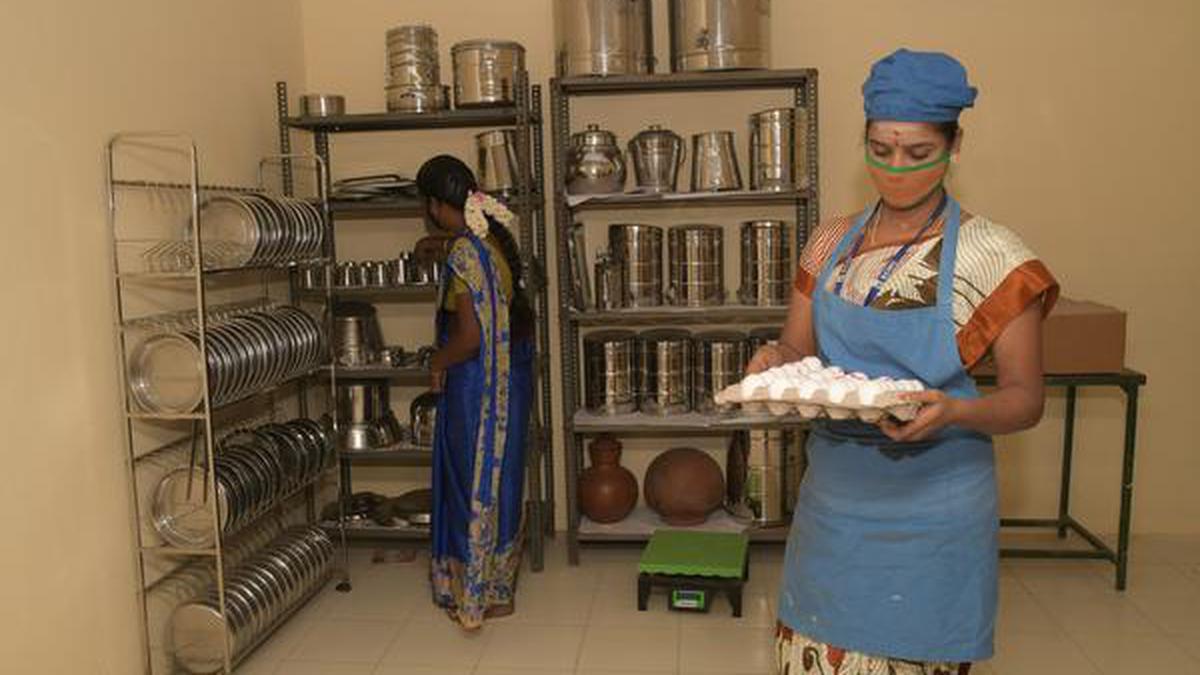Cooking food at noon meal centres in schools generates employment, particularly for women, they say. File
Experts including economists, academics and activists have written to Tamil Nadu Chief Minister M.K. Stalin, expressing concerns about one of the recommendations of the one-man committee headed by retired Madras High Court judge Justice K. Chandru, on replacing on-site cooking of noon-meal for school students with centralised kitchens.
The State government constituted the committee headed by Justice (Retd) Chandru in the wake of an incident at Nanguneri in Tirunelveli district in August 2023, in which two school children belonging to the Scheduled Castes were brutally assaulted by a group of students from an intermediate caste.
After a study, Mr. Chandru submitted his report to Mr. Stalin on June 18, 2024. The report recommended the Tamil Nadu government to prohibit students in schools from wearing coloured wristbands, rings, or forehead marks that may indicate their caste and removal of caste appellations in the names of schools.
One of the other recommendations of the report include establishing centralised kitchens at block level with adequate staff required for its operation and a distribution network attached to school noon meal centres, instead of having kitchens in every school.
Experts expressed “deep concerns” about this recommendation. In a joint letter to Mr. Stalin, Development Economist Jean Drèze, Researcher S. Chella Rajan, Nutritionist Sylvia Karpagam, Economist Reetika Khera, Tiruvallur Congress MP S. Sasikanth Senthil, activists Prince Gajendra Babu, Karuna Muthiah and T. Ramakrishnan, said in some States, functioning of centralised kitchens, particularly in rural areas, were not up to the mark.
“When food is cooked in the noon meal centres located within school premises, teachers, students and parents can monitor the cooking activities and the process is accountable. But in the case of centralised kitchens, there is a less chance of public accountability,” they said.
According to them, establishing centralised kitchens will incur additional expenses such as transportation of cooked food to schools and creation of cold storage facilities to store raw materials. If the distribution network is not proper, the food will not reach the schools on time and there are high chances of food wastage. Contractors of centralised kitchens will focus on making profits rather than supplying quality food to students, they said in the letter.
Cooking food at noon meal centres in schools generates employment, particularly for women. Nearly 27% of the noon-meal workers belong to Scheduled Caste or Scheduled Tribe communities. Centralising food preparation will create adverse effects, rather than solving problems faced by Dalit cooks, they said and urged the State government not to accept the specific recommendation on centralised kitchens.

